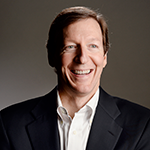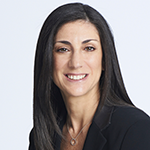Six years ago, after spending the bulk of her career in human resources consulting and outsourcing, Iris Goldfein took over as chief people officer at Sutherland Global Services, a business-process outsourcing firm with more than 30,000 employees spread across 13 countries. In doing so, she has gained a perspective of the HR landscape that few others possess. She discusses what it means to work on such a stage.
What’s unique about the HR function in a company whose chief service is people?
Iris Goldfein: We’re very integrated with the business because the people we bring in and the manner in which we train and develop them is the key to the delivery of services. Our CEO, Dilip Vellodi, doesn’t even allow HR to be called a support service, because we own the business outcomes as much as any other group.
How do you manage the HR function of a company with such geographic breadth?
Goldfein: The challenge is always to make sure you’re carrying out the mission of the organization, which is common globally, but at the same time to be sure that all that you are doing works on a local level. It is critical to understand how different cultures are motivated and to be sensitive to perceptions. To that end, it’s important to have great people on the ground in every country—both operational leadership and HR leadership. It is also important for me to be visible and willing to listen and learn from all of our people.
How do you guide those resources?
Goldfein: I felt we needed centers of excellence in areas that were critical to driving business results. These include talent acquisition and learning for our entry-level people, because both are core competencies of Sutherland; talent management, because all facets of leadership development and performance management are key; total rewards, because it is obviously critical to fairly and creatively reward excellence; and finally HR operations, because we believe strongly that if we expect our people to deliver a fabulous customer experience then they deserve the same. The strategies are global, but each center of excellence has resources located in each geography, so it’s a mini consulting organization. HR business partners, who drive geographic HR, work closely with the centers of excellence with regard to their needs and continuous improvement of initiatives. It’s worked beautifully for us.
Why is it so important to recruit the right people? How do you approach the process?
Goldfein: Recruiting and training is a core competency, so we simply have to do better than the competition. The challenge is, when we have 30 people sitting in front of us and need to hire 10, how do we choose those with the highest likelihood of success? We added science to the way we recruit. We do validated assessments that allow us to understand the profiles of our highest-performing people across 38 behavioral competencies, then recruit employees who look and behave just like our highest-performing people. The business results once our people come out of training have been very significant.
Once you have the right people, how do you keep them?
Goldfein: Assessments help get us the right people—the next critical step is how we train them to be successful. It’s common for our clients to give us the training, and it is often a series of Power Point presentations. We felt strongly that more modern learning approaches would drive effectiveness. We introduced what we call scenario-based learning, which trains people using the actual situations they will encounter at work, and we start from the easiest transactions to the hardest. As an analogy, think of gaming. This has been so successful that some of our clients have tried to purchase our learning approach, but we consider it critical intellectual property. We also have individuals—both promoted from within and recruited from outside—whose sole job is to be a master coach, teaching our people how best to coach our people. Also, there’s a 16-week certification for first-line supervisors, to achieve what we call platinum coach status. Having first-line supervisors spend the vast majority of their time constructively coaching their people makes a measurable difference, and at Sutherland, we are all about measurable results.

